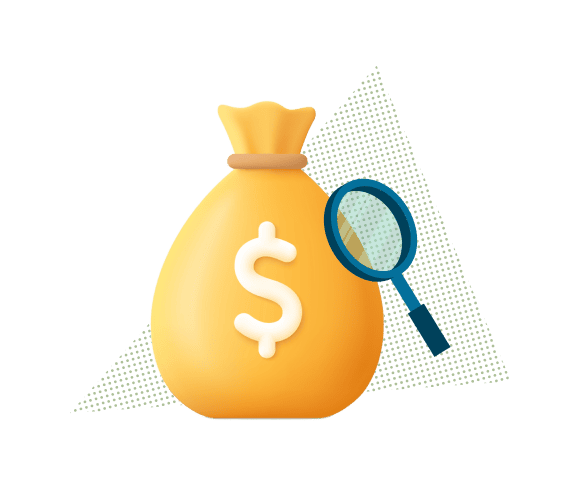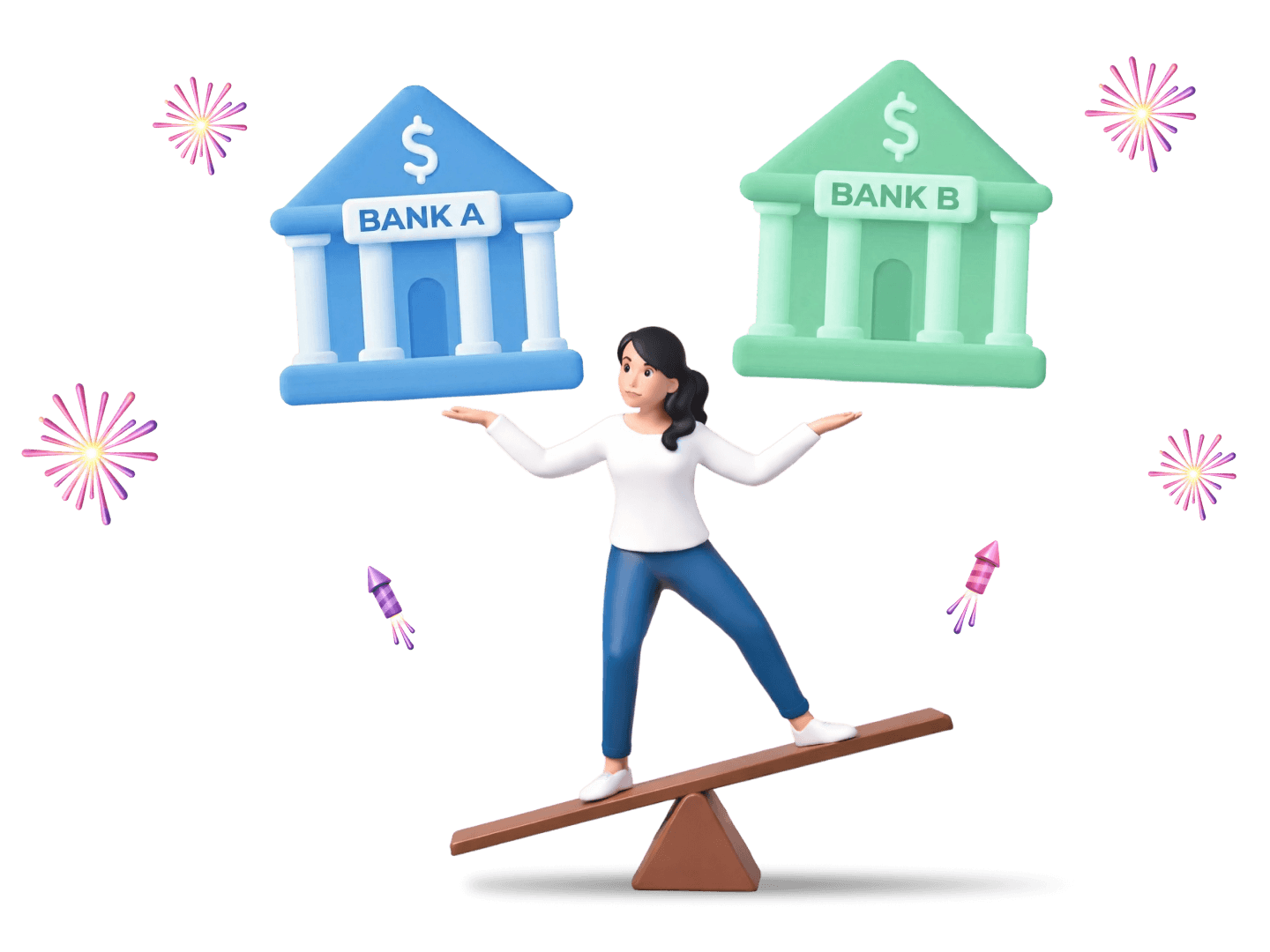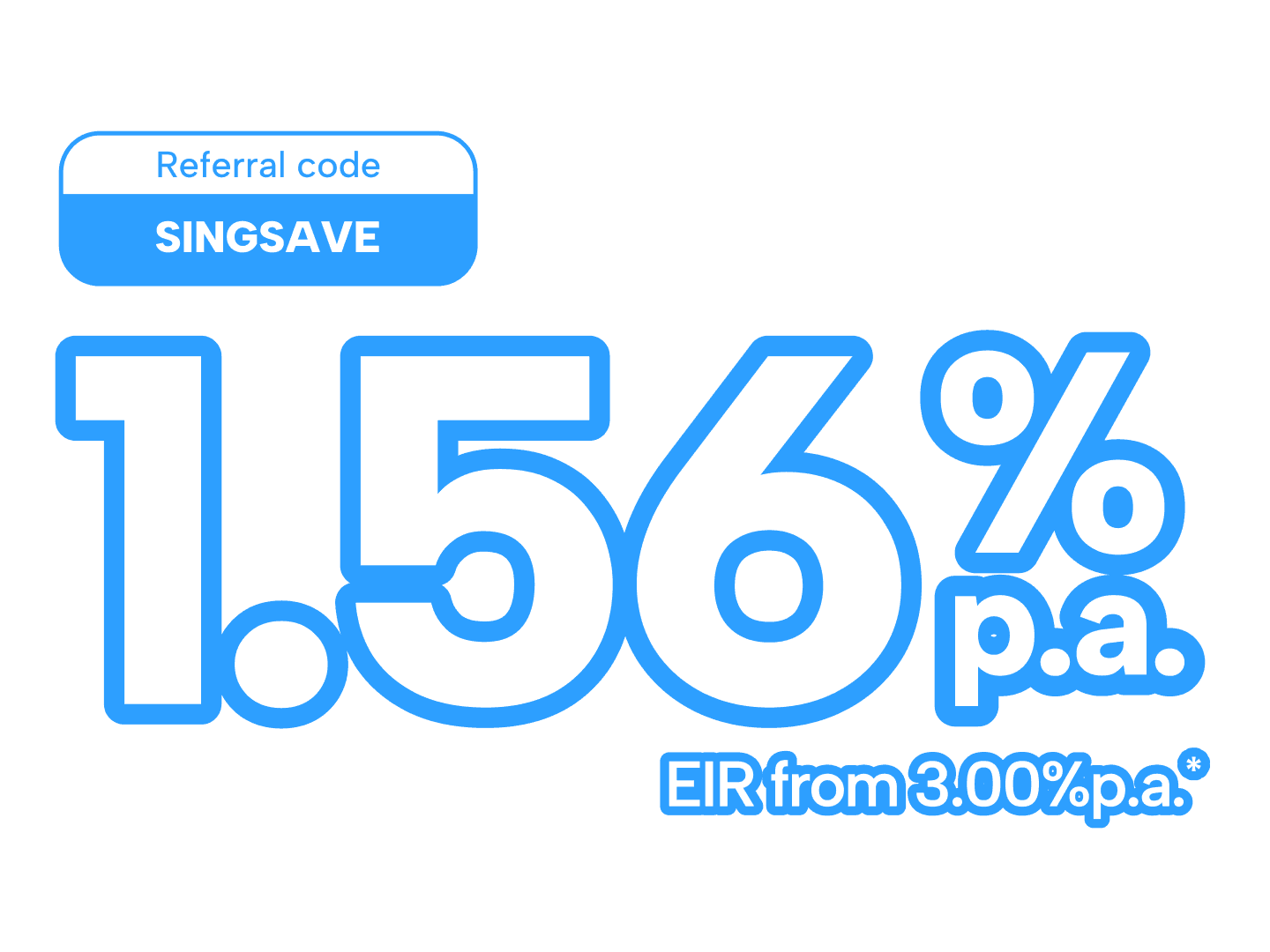Is Now a Good Time to Refinance My Mortgage?
Updated: 11 Dec 2025
When is a good time to refinance your home? If you're wondering when to refinance your mortgage, this comprehensive guide provides everything you need to know to make a well-informed decision about your home loan and its potential refinancing.
Unlock the lowest home loan interest rates
Discover the best home loan rates to ensure you secure the most affordable financing and achieve your homeownership goals.
When interest rates are dropping, mortgage refinance tends to be in the news and a frequent topic of discussion. But falling interest rates aren't the only reason it might be the right time to refinance your mortgage.
Keep reading to learn more about what you should carefully consider before you refinance your mortgage and explore different scenarios that might lead you to refinance your mortgage. Then you’ll be better equipped to decide if it's a good time for you to refinance and accurately determine when you can refinance your home loan.
SingSaver Personal Loans Cashback Offer
Enjoy interest rates as low as 1.08% p.a. (EIR from 2.09% p.a.) and up to S$4,900 in cashback when you apply for a personal loan via SingSaver. Valid till 1 March 2026. T&Cs apply.
What you must know before you refinance your home
When you decide to refinance your home loan, there are important factors to consider, such as:
-
Cost of refinancing: Refinancing involves various costs, including legal fees, valuation fees, and potentially early redemption penalties if you exit your current loan during the lock-in period. It's crucial to calculate these expenses and ensure that the potential savings from refinancing will outweigh these costs over the duration of the new loan. Banks may also require a three-month notice if you're terminating the loan early. When refinancing, you'll also need to factor in costs like legal fees, valuation fees, and possibly fire insurance unless these are subsidised by the new lender.
-
Long-term housing plan: Think carefully about your long-term plans for the property. Most home loan packages in Singapore come with a lock-in period of 2–3 years. If you plan to sell the property soon, refinancing may not be worthwhile, as you may not stay in the property long enough to reach the break-even point. In other words, you might not recoup the associated costs of refinancing before selling.
-
Your current plan: The ideal time to start planning for refinancing in Singapore is around four months before your lock-in period ends or when you anticipate interest rates to increase significantly. Exiting your current loan early can trigger prepayment penalties or require you to return subsidies or waivers (like those for legal or valuation fees).
>> MORE: Best car refinance loans and rates
The benefits of refinancing your home loan
If you're wondering whether you should refinance your mortgage, the good news is that you might indeed get a better mortgage rate by doing so. One of the top reasons Singaporeans choose to refinance is to secure a lower interest rate, as this can lead to substantial savings over the loan's lifespan.
This can be particularly helpful if your financial goals or life circumstances have changed, and you want to reduce your monthly mortgage payments.
Saver-savvy tip
There are a few different ways to secure a lower interest rate when refinancing, and it is important to compare rates from different lenders before making a decision. Whether you’re a first-time homeowner or looking to refinance, compare the best home loans for the most advantageous rates.
For instance, even a small reduction in the interest rate — say, from 3.5% to 3.0% — can translate to tens of thousands of dollars in savings, especially for larger loans of S$500,000 and above. To get a clearer picture of your potential savings, it's advisable to use a refinancing calculator to estimate your new monthly payments and the total savings you could achieve.
However, it's also important to note that bank promotional rates, while attractive upfront, often have a limited duration, typically lasting only for the first year or two. After the promotional period ends, the package may revert to a significantly higher board rate. Therefore, it's crucial to always carefully check what the ongoing rates and spreads are and diligently compare offers across several banks and not just your current lender.
>> MORE: Best car refinance loans and rates
⚡SingSaver x SCB CashOne Personal Loan Flash Deal⚡
Enjoy SCB's Lunar New Year Interest Rate starting from 1.08% p.a. (EIR from 2.09%), the lowest in the market! Plus, get up to S$4,900 in Cashback when you apply for Standard Chartered CashOne Personal Loan via SingSaver. Valid till 1 March 2026. T&Cs apply.
Refinancing for your financial goals
Now that you have a better understanding of when you can refinance your home loan, it's time to understand more about the potential benefits of refinancing your mortgage. In Singapore, this financial flexibility can be particularly helpful in managing your cash flow more effectively or strategically aligning your repayments with significant life events, such as planning for retirement income, funding children's higher education, or pursuing long-term investment planning.
Want to reduce your monthly repayments to free up cash? You can extend your loan tenure (up to the age cap of 65 or 75, depending on the specific bank's policies). Prefer to pay off your loan faster and save substantially on overall interest costs? You can shorten the tenure, reducing your total interest paid — especially if your income has increased significantly in recent years or if you’ve successfully cleared other outstanding debts.
That’s why it’s essential to select the loan term that carefully aligns with your current life stage, evolving financial goals, and long-term aspirations, such as planning for a comfortable retirement or strategically investing elsewhere, because this critical decision significantly impacts your long-term financial well-being and security.
In Singapore, you can also refinance without necessarily changing your original loan term by precisely matching the new loan to your desired payoff date — such as aiming to pay off the mortgage before retirement. For instance, if you’ve already paid five years on an initial 30-year loan, you can refinance into a 25-year term to maintain your original schedule.
It's highly advisable to ask your bank to show you different loan amortisation (meaning the schedule of payments and how much of each payment goes toward the principal and interest) scenarios to thoroughly compare monthly costs and the total amount of interest payable over the loan's life.
Loan type: Fixed or floating?
Consider carefully switching from a floating-rate loan to a fixed-rate loan (or conversely, switching from fixed to floating) depending on current market conditions and your personal risk tolerance.
Floating-rate packages (pegged to SORA or board rates) offer potentially lower initial interest rates but come with inherent interest rate volatility and the risk of future increases. Meanwhile, fixed-rate packages (which offer repayment certainty) provide greater stability and predictable monthly payments, which is particularly valuable for budgeting and financial planning.
In essence, fixed-rate loans provide stability and protection if interest rates are rising, mitigating the risk of payment shock and unexpected increases in your monthly mortgage burden, whilst floating-rate loans may be more financially attractive when interest rates are stable or are expected to fall, potentially leading to lower overall borrowing costs.
Banks also offer hybrid loan packages, combining elements of both fixed and floating rates. However, you need to review their complex structure carefully to fully understand how and precisely when rates will adjust, and always thoroughly check the fine print of the terms beyond the headline advertised rate, including all applicable fees and any re-pricing clauses, and understand that private mortgage insurance is not typically a factor in Singapore's home loan market.
>> MORE: How will rising housing loan interest rates in Singapore impact you?
⚡SingSaver x Trust Personal Loan Flash Deal⚡
Enjoy low interest rates from 1.56% p.a. (EIR from 3.00% p.a.) plus up to S$1,750 in cashback and rewards when you sign up for Trust Bank Personal Loan via SingSaver. Plus, receive a S$10 FairPrice E-Voucher from Trust when you sign up with the referral code SINGSAVE. Valid till 1 March 2026. T&Cs apply.
Cashing out home equity
In Singapore, you can strategically cash-out refinance your built-up home equity when refinancing your mortgage, subject to meeting the bank's specific eligibility criteria and their individual risk assessment.
This financial tool is commonly used to fund major and often significant expenses, such as extensive home renovations to increase property value, financing children’s expensive overseas education, or pursuing potentially lucrative business opportunities.
Cash-out amounts depend heavily on the loan-to-value (LTV) limit allowed by the bank, your outstanding mortgage balance at the time of refinancing, and the bank’s overall risk appetite and lending policies. For owner-occupied properties, LTV caps in Singapore usually go up to a maximum of 75% of the property's appraised value.
However, it's crucial to note carefully that tapping into your home equity significantly increases your total loan amount and, consequently, your monthly repayments, which can strain your finances, so you must make absolutely sure you’re using the borrowed funds for a financially sound and responsible reason with a clear plan for repayment. If not, you should carefully explore other means of securing the necessary funds, such as personal loans or lines of credit, to avoid jeopardising your home ownership.
Saver-savvy tip
Unlike taking out a home equity line of credit or a home equity loan, repricing focuses on modifying the terms of your existing mortgage. You can refinance your home loan with the same bank. This process is called "repricing". This can be an excellent way to get a lower interest rate on your mortgage and change the terms of your loan. For example, you might be able to shorten the length of your loan or switch from a variable-rate loan to a fixed-rate loan.
Refinancing due to life changes
Banks and lenders may also perform thorough checks of your credit scores and any existing debt obligations to determine if the updated loan structure is financially viable and sustainable for the borrower. Life circumstances and situations change frequently and unexpectedly, and sometimes, your existing mortgage structure must also adapt to reflect these changes. You might therefore, want to refinance your mortgage if you encounter situations where you need to:
-
Add a spouse to the mortgage after marriage to formally share ownership and financial responsibility for the property.
-
Remove an ex-spouse or a family member from the mortgage following a divorce or a formal ownership restructuring agreement.
-
Change the primary income contributor due to evolving CPF usage regulations or shifting HDB eligibility rules.
Refinancing provides a valuable opportunity to re-evaluate the borrower profile and their current financial standing. The new bank will meticulously assess the income, CPF contributions, credit score, and mortgage servicing ratio (MSR) or total debt servicing ratio (TDSR) of the applicant(s) before granting final approval for the refinance.
SingSaver x HSBC Personal Loan Exclusive Offer
Enjoy attractive interest rates from 1.83% p.a. (EIR from 3.5% p.a.) plus get up to S$1,100 in Cashback when you apply for HSBC Personal Loan via SingSaver. Available to new and existing customers! Valid till 1 March 2026. T&Cs apply.




